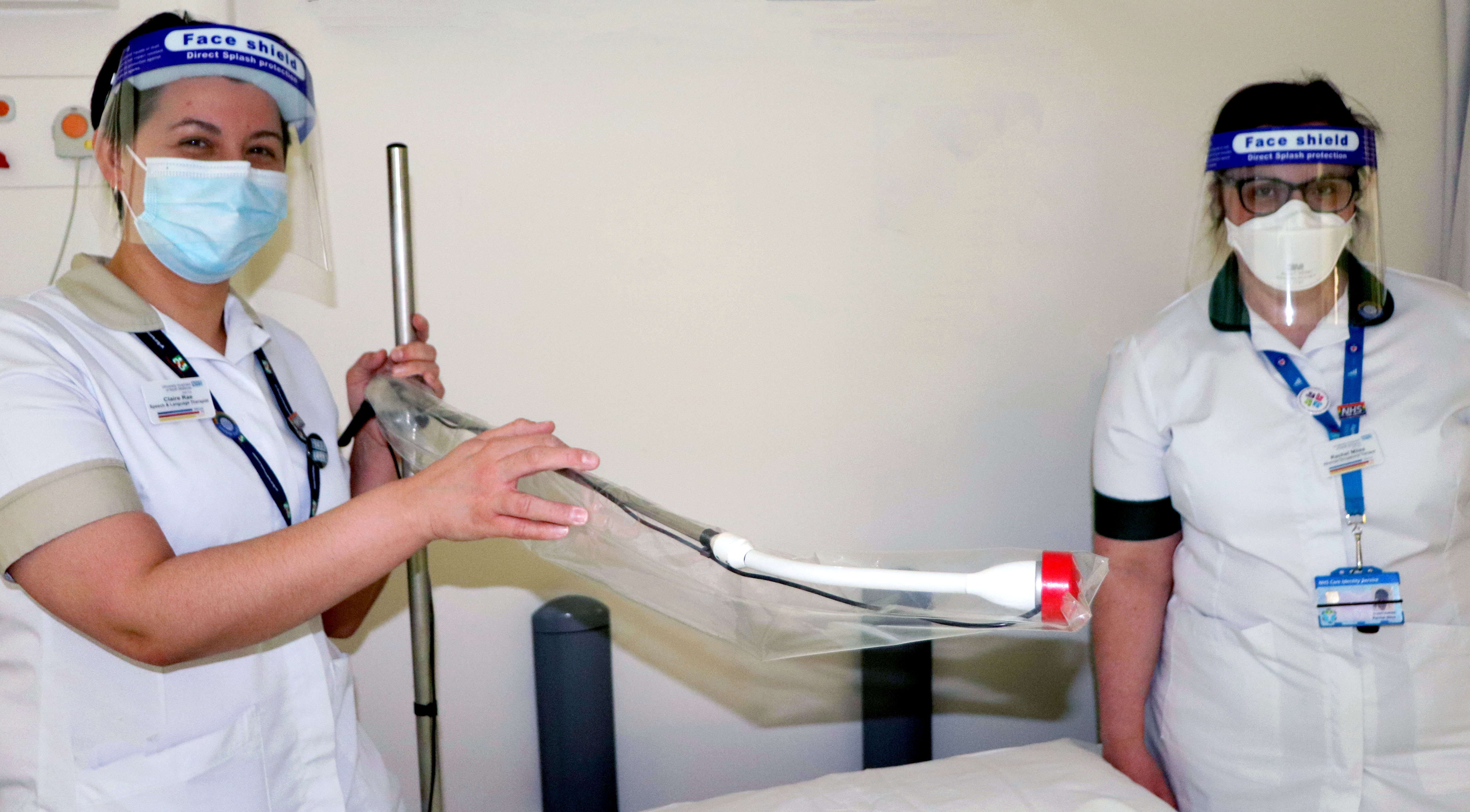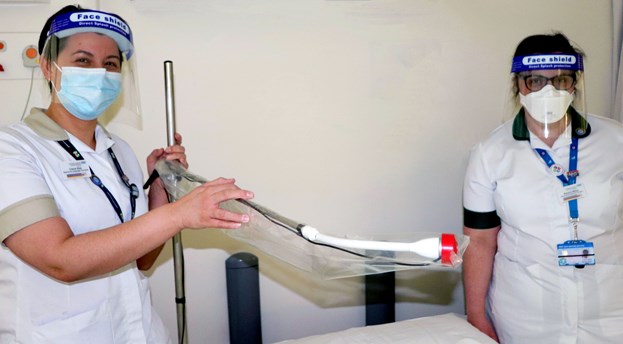Custom-made technology improving patient and staff communication


Patients on UHNM’s acute rehabilitation and trauma unit (ARTU) can now communicate more effectively with staff, thanks to the use of innovative new technology. The team are trialling five prototype custom-made call switches which make it easier for patients with even severe injuries to let staff know when they need assistance. The switches have additional infection prevention features incorporated into their design so they can be cleaned down effectively between patients and, if successful, can replace standard call switches commonly used to help patients with limited movement or dexterity.
Claire Rae, Speech and Language Therapist on ARTU, said: “Many of our patients have very severe injuries and sometimes they can struggle to move or speak. Often these patients are unable to use standard call switches to attract the attention of staff because it’s just too difficult for them to operate. This can be incredibly frustrating for them when they’re already feeling unwell and vulnerable.
“We had already been searching for a better switch solution for a long time, but we redoubled our efforts when we cared for one particular patient who could only nod and shake his head and was really struggling to communicate with us. We don’t want our patients to have this problem, so we did a lot of research, but no suitable alternatives really existed on the market. We did our best to fashion something from communication aids that were available ‘off the shelf’ but they weren’t ideal and pretty much everything had only been designed for single-patient use, which isn’t practical for a large acute trust like ours. I spoke to colleagues in hospitals across the west midlands as well as reps for lots of different switch and call bell companies, but no one really had anything that would help patients at the level ours require.”
Claire began working with Berkshire-based company Smile Smart Technology, a family-run enterprise which provides solutions for personal independence through assistive technology, to find a solution.
Claire said: “Thanks to our work with Smile Smart, we now have a switch which is highly sensitive, making it easier to press than the standard ones. Patients with only partial use of their bodies will still be able to nudge the switch so they can call for attention. The switches are attached to a sturdy base, which makes them safer and stronger and they can be manoeuvred around to fit the patient’s position. They can be shared safely between different patients thanks to a special sleeve which forms a protective cover over the device, meaning high standards of infection prevention and control can be maintained. They can also be used in conjunction with communication and environmental control systems such as an ipad or a computer.”
Rachel Miles, Advanced Occupational Therapist on ARTU, said: “Being in hospital can take away a person’s independence and their ability to function within their environment and some of our patients can really struggle with this. These switches enable patients with minimal functional movement to get a little bit of control back and we think this will make a real difference to people’s mental health and general wellbeing.”
Roger Dakin is owner of Smile Smart Technology and is himself an inventor.
Roger said: “Two years previous to beginning work on this project, my daughter was taken into hospital with an abscess on her brain which caused her to present with symptoms very similar to Stroke. She was unable to express herself or operate in a normal physical way and whilst in hospital, her biggest frustration was not being able to call the nurse for help to get to the bathroom. This bothered her more than anything else and although it’s such a simple thing, it was very important to her. This experience gave me some insight into the issue Claire described to me.”
Roger worked tirelessly during lockdown, spending hours in his workshop at home and liaising with local suppliers to find a design that was appropriate.
Roger said: “It’s been lovely to be able to work things out together because we have been able to talk and listen until we have got it right. ‘Off-the-shelf’ solutions are just not always suitable for someone’s needs and often the end user of the product gets lost in the story. But because we have worked very closely, we have been able to keep honing and adapting the switch to be truly effective and meet people’s needs.
“I have nothing but respect for people in healthcare and to be able to give something back is so rewarding.”
The team on ARTU have already received positive feedback from patients about the switches, which are being trialled for two months. Once fully approved, they will be used across the trust in areas such as critical care, neurology and neurosurgery where patients are likely to require a higher specification of technology to assist them.